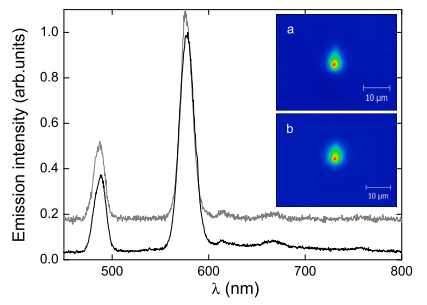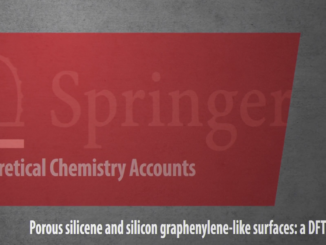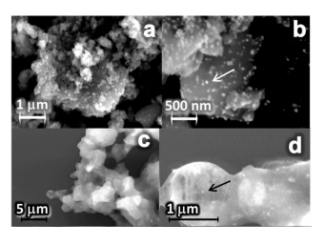
Fabrication of waveguides by fs-laser micromachining in Dy3+/Eu3+ doped barium borate glass with broad emission in the visible spectrum
Abstract: Boron-based glasses are relevant materials for optical applications on account its ability to hold large amount of oxide modifiers and rare-earth ions. The barium borates ones are particularly interesting due to its designed second and third-order optical nonlinearities. Despite the interest on barium borate glasses for linear and nonlinear optics, the fabrication of active elements for optical microcircuits are still scare. In this paper, we demonstrate the fabrication of three dimensional waveguides in barium borate glass with broad emission in the visible spectrum. Such performance was achieved through the co-doping with Dy3+ and Eu3+ ions, which together provide broad emissions at blue, yellow and red, along with the glass processing with femtosecond laser pulses. Almost circular waveguides, with diameter of approximately 5 mu m and 7.8 mm long, were inscribed into the bulk of the glass by direct laser writing, whose support single mode guiding at 632.8 nm with propagation loss of (3 +/- 1) dB/cm. When coupling UV light, such waveguides display the typical emission of Dy3+ and Eu3+ ions with its additional guiding throughout the waveguide length. The broad band emission and its guiding in the visible spectrum revel that the waveguides fabricated by femtosecond laser micromachining in co-doped barium borate glass are promising active elements for the development of optical micro-devices.
Author(s): Santos, SNC; Almeida, JMP; Almeida, GFB; Mastelaro, VR; Mendonca, CR
OPTICS COMMUNICATIONS
Volume: 427 Pages: 33-36 Published: NOV 15 2018
DOI: 10.1016/j.optcom.2018.06.026




